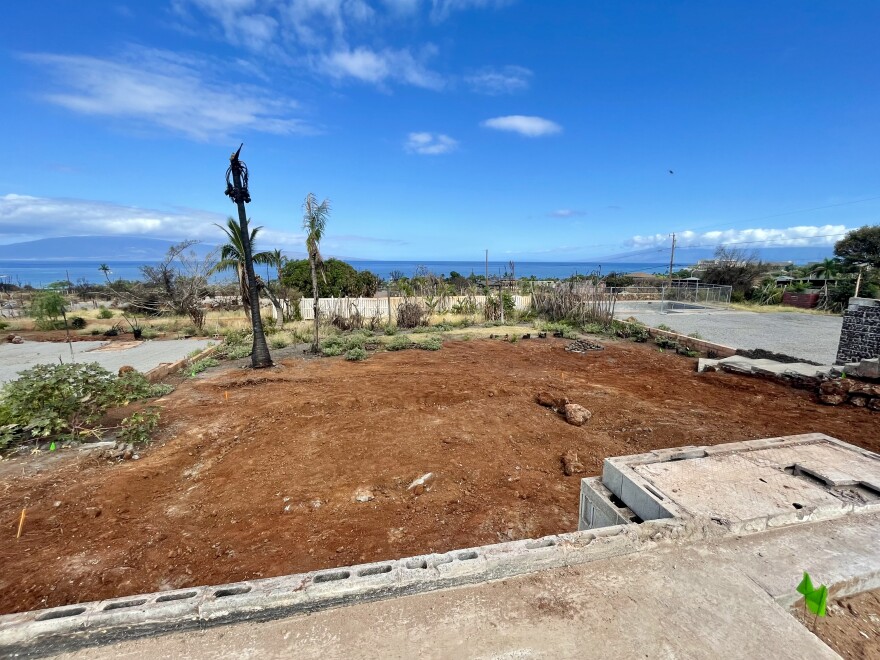The Lahaina Community Land Trust has secured its first property to benefit local residents for future generations.
“When the community land trust purchases land, the land trust will own the land forever, in perpetuity, and then the structure built on top can be sold to a Lahaina resident," said Autumn Ness, the organization’s executive director.
Paperwork to secure the Wahikuli property was signed on Aug. 8, one year after the fire that destroyed thousands of homes.
Ness said this first purchase is a huge step forward for the land trust but also brings mixed emotions.
“We struggle with those two things, daily, hourly — the desire to put land in hand it was up for sale and the sadness that comes with the fact that people are being forced to sell. In this particular situation, the seller had some really beautiful things to say about why he was selling the property," she said.
Rick Kimball and his wife are in their 80s and like many fire survivors, escaped the blaze but lost their Lahaina home that day. They left Maui shortly after the fire to stay with family on the continent.
Because of their age, they decided not to return to rebuild in Lahaina.

They wanted their land returned to the community rather than sold to investors, acknowledging Hawaiʻi's history of exploitation by outsiders.
“We started to get a trickle of invitations to, 'Please sell your property to some sort of speculators' or whatever, and we just decided that we would rather see that it do some good in Lahaina,” Kimball said.
Kimball had been involved in the start of a land trust in California before they moved to Lahaina in 2007 and he was familiar with the process. He reached out when he heard about the Lahaina Community Land Trust’s efforts.
“The thing that people should understand, is there are going to be people that are not positioned where they can't see coming back to Lahaina and rebuilding, and would be wondering what to do with their property. I think that the land trust is a very good place to convey title so that it can be put to some good use,” he said.
The Kimballs’ property is zoned for one home and up to two ‘ohana units, which is what the Land Trust plans to build.
“The house on top will be sold to a Lahaina resident, and then they own the house,” Ness explained. “They're a regular homeowner. They build equity. But the structure and the land is tied together through a ground lease, and the ground lease will define if and when they ever sell it, for example, that they also have to pay it forward and sell it to another Lahaina resident, and that the sale price will be affordable.”
Ness said the land’s purchase price is based on independent appraisals. Once construction is complete, the homeowner will be selected through a lottery system.
“So it's a way of protecting land and our housing stock forever for, you know, future generations. We never have to do this again once we get land in the trust,” she said.
The property’s purchase was made possible through a partnership with The Conservation Fund, a national nonprofit to protect critical land and water resources.
Ness said they understand the ties between generational Lahaina ‘ohana and the health of the environment.
“It's this really interesting nexus of, you can't do conservation work in a place where the Indigenous people and the lineal descendants and the generational families have been displaced, because then no one left will understand what the water and the land needs,” she said.
Ness encourages Lahaina residents, who are considering the difficult decision to sell, to first reach out to the Land Trust and its financial resources before contacting a realtor.
“If you really, really do have to sell, we'll talk to you about what that means,” she said. “But we want you to go through all those other resources first, if you're trying to hold on to your land.”







